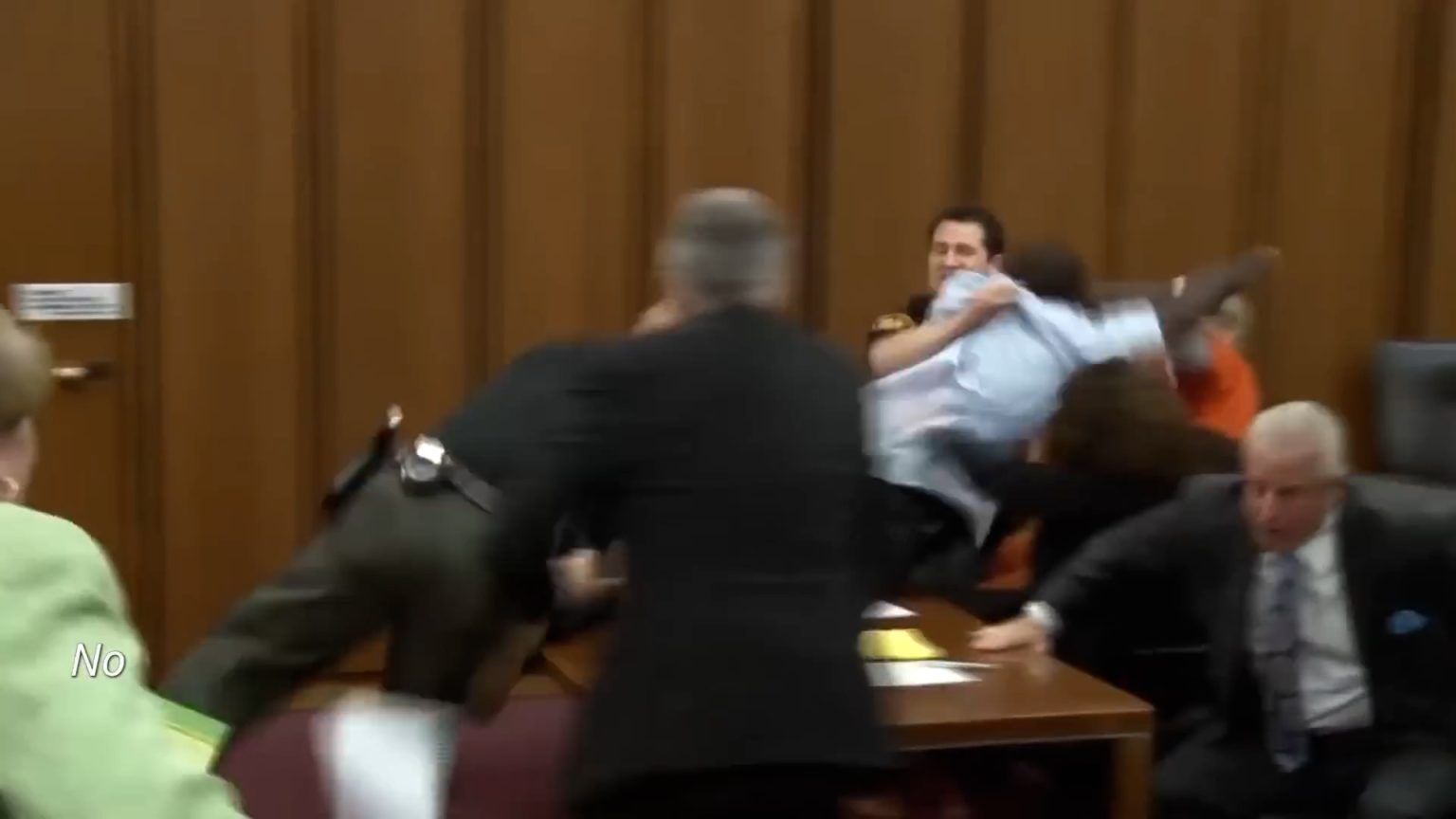CLEVELAND (AP) — The father of a woman murdered by a convicted sex offender lunged across a courtroom table in a violent outburst on Thursday, moments after a judge sentenced the defendant to death for killing three people and wrapping their bodies in garbage bags.
Van Terry, the father of Shirellda Terry, had walked to the front of the courtroom to give a victim-impact statement when he turned toward Michael Madison, who flashed a malicious smile. In an instant, Terry charged at Madison, only to be quickly subdued by sheriff’s deputies, as Madison and his attorneys scrambled to avoid the confrontation.
Law enforcement officers swiftly escorted Terry out of the courtroom and the courthouse. A spokesman for the Cuyahoga County prosecutor’s office stated that the incident is under review.
Despite the disruption, Cuyahoga County Common Pleas Judge Nancy McDonnell chose not to clear the courtroom. After a brief, 15-minute delay, the proceedings continued.
The judge upheld the jury’s recommendation to sentence Madison, 38, to death. While she had the option to impose a life sentence without parole, she emphasized that the brutal nature of Madison’s crimes outweighed any mitigating factors, including his troubled childhood.
Last month, Madison was convicted of multiple counts of aggravated murder and kidnapping.
Madison remained silent throughout Thursday’s hearing, responding only to questions from the judge. His defense attorney, David Grant, declined to comment afterward.
Prosecutor Tim McGinty described Madison as a member of the “worst of the worst,” arguing that the death penalty was an appropriate sentence for him.
Given the length of the appeals process, any execution is likely years away. Additionally, Ohio currently faces a shortage of lethal injection drugs, casting doubt on the feasibility of carrying out executions in the near future. A new round of executions is tentatively scheduled to begin in January, but that timeline remains uncertain.
The bodies of 38-year-old Angela Deskins, 28-year-old Shetisha Sheeley, and 18-year-old Shirellda Terry were discovered in July 2013 near the East Cleveland apartment building where Madison lived. Madison admitted to strangling two of the women but claimed he could not remember killing the third. Prosecutors said the women were murdered over a nine-month period: Sheeley in October 2012, Deskins in May 2013, and Terry in July 2013.
During the hearing, other family members of the victims spoke about the profound grief and loss they have endured.
Linda Deskins, the stepmother of Angela Deskins, shared the pain Angela’s father has suffered.
“Nothing anyone can say or do can make it better for him,” she remarked.
The discovery of the bodies in 2013 drew national attention, raising concerns that another serial killer, similar to Anthony Sowell, might be active in Cleveland. Sowell, convicted in 2011 for the murders of 11 women, was sentenced to death, and the Ohio Supreme Court is currently deliberating whether to uphold his conviction and sentence.
Madison’s defense team did not dispute his guilt during the trial. Instead, they sought to avoid the death penalty by presenting evidence of his severe psychological trauma due to abuse in his early years. Testimony revealed that Madison had been physically abused by his drug-addicted mother, her boyfriends, a stepfather, and other family members.
“This history of abuse and his dysfunctional upbringing certainly doesn’t excuse what happened here, but it helps explain the type of person Michael Madison became,” defense attorney Grant explained to the judge.
The case began when a cable television worker reported a foul odor emanating from a shared garage in the apartment building where Madison lived. Upon investigation, police discovered the decaying body of a woman wrapped in garbage bags and sealed with tape. The following day, more bodies were found in a vacant house basement and a nearby backyard.
Prosecutors contended during the trial and mitigation hearing that Madison’s actions warranted the death penalty, highlighting the horrific circumstances surrounding the murders.
Assistant prosecutor Christopher Schroeder argued that a death sentence would send a strong message to the community about the severity of such crimes.
Madison had been classified as a sex offender in 2002 after being sentenced to four years in prison for attempted rape.
